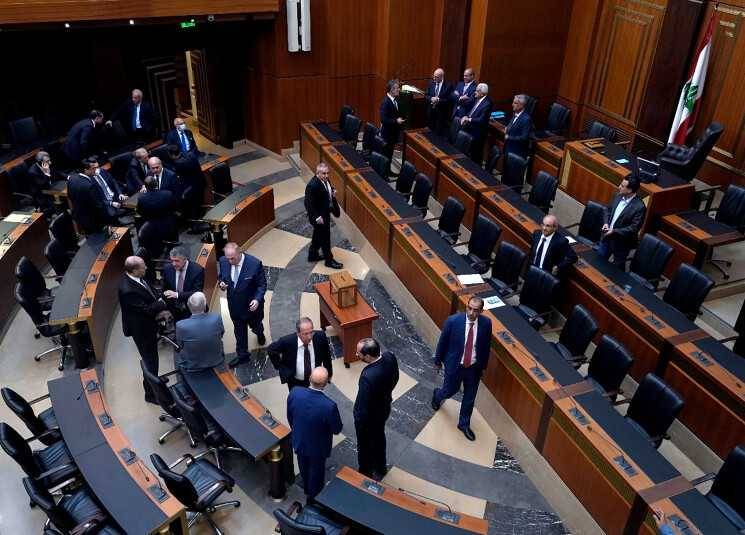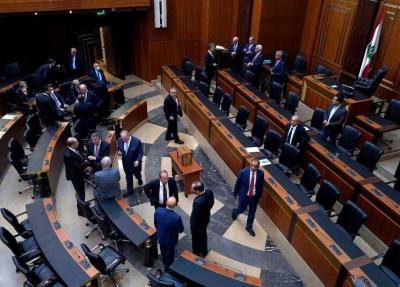The movements involving political entities that classify themselves as sovereign or change-oriented have shown signs of flexibility in some of their positions, especially after receiving answers to their questions regarding the primary purpose of dialogue or consultation, regardless of its naming, and whether the sought agreement is a cover to impose a specific candidate. Informed sources revealed that the responses received by these entities reiterated what the President of the Council emphasized in his initiative, regarding the need to avoid imposing new norms. Instead, the focus is on facilitating and accelerating the presidential elections through dialogue or consultation at the table of agreement, not to predetermine the name of the President, but to achieve consensus on two main points:
First, securing the political cover for the quorum of the presidential election session (86 deputies) by obliging the parties seriously to attend the election sessions in all rounds, whether the first, second, third, or fourth. The second matter, the sources added, is to agree on a candidate's name if possible. If that proves difficult, agreeing on two or three candidates or more, and then presenting this list of candidates in consecutive election sessions with a full quorum for deliberation and voting, allowing the candidate who receives the majority to win.
Thus, there is absolutely nothing in the agenda of the desired dialogue or consultation that justifies the opposition's narrative of thwarting it and prematurely confining it to the framing of a candidate from the resistance. The sources highlighted that some of these deputies promised to provide their final response regarding their participation in the consensus process or not within a short period. Furthermore, high-ranking political sources told "Al-Jumhuriya" that the atmosphere surrounding the recent movements is generally positive, clearly reflecting that cracks have begun appearing in the wall, a significant development that suggests that the constituency for consensus is gradually expanding. This is reflected in the positions of parties that had categorically opposed such a notion but have begun to lean towards it, as hinted by these parties in their discussions with those leading the movements or during meetings with the President of the Council.
However, it cannot be said yet that matters have been definitively settled; instead, they still require further efforts, especially regarding the resolution of securing the two-thirds quorum for holding presidential election sessions and commitment to this quorum in every round of elections, as this matter remains, for now, in a state of complexity.
While waiting for the hesitant entities to finalize their stance, the same sources revealed that the internal movements toward consensus were accompanied by external efforts on multiple fronts. They mentioned that several signals from the Vatican confirm the Holy See's involvement in efforts to resolve the presidential crisis in Lebanon, whether with the French or other members of the Quintet Committee. Sources returning recently from Rome asserted that the Holy See expresses deep concern over the cycle of violence in the region, particularly due to the ongoing war in Gaza extending to Lebanon. Consequently, the Vatican emphasizes that the need to extricate Lebanon from this crisis necessitates the urgent settlement of the presidential file through the agreement of Lebanese on choosing a President, as well as the necessity of coordinated efforts to achieve a ceasefire and provide security and stability in southern Lebanon.
The sources do not rule out that the Secretary of State of the Vatican, Cardinal Pietro Parolin, may convey a papal message of this nature during an anticipated visit to Beirut in the coming days. A political authority expressed hope that the presidential movements would solidify consensus as a necessary step to expedite the election of a President, stressing, however, that this requires direct external support, without which matters will likely remain stalled. The same authority confirmed that the current presidential outlook is one of pessimism until proven otherwise, stating: "All of this depends on serious support for consensus. This support is not only required from the Qataris, who have not ceased their efforts, or from the French, who have acted in various ways and informed us that they will continue despite the failure of Jean-Yves Le Drian's mission and will come again to Beirut, but this support is also needed from Saudi Arabia, which has so far refrained from playing any direct role in the presidential process and has not indicated its willingness to do so, aside from its partnership as a member of the Quintet Committee."
Moreover, the same authority added that this support is also required from the United States of America, which was the first to call for the Lebanese to share in choosing their President and the first to warn that delaying the election of a President would plunge Lebanon into a catastrophic situation. However, the United States has not yet taken on its role, which is widely recognized as the most effective and capable of resolving the presidential issue. Consequently, relying on an active American role regarding the presidential file at this time does not appear to be realistic, as it is overshadowed by the American priority, centered on the Israeli war in Gaza and its ramifications for Lebanon, along with concerns that it may engulf the entire region, according to "Al-Jumhuriya."




